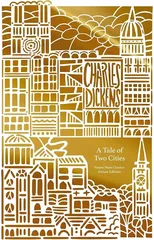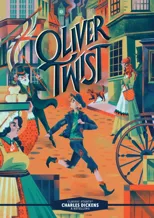Dr. Manette is released from the Bastille after eighteen years' confinement, which has driven him to the edge of madness. He is "recalled to life" by the joyous reconciliation with his daughter Lucie, and returns with her to England. But Manette's maniacal obsession with shoemaking, developed during his long incarceration, is not quite over, for there are dark secrets surrounding his "crime" that have yet to emerge; secrets involving the reprehensible French aristocrat Marquis Sr. Evremonde, who represents the worst of the ancien regime. Lucie is courted by Evremonde's nephew, Charles Darnay, who has renounced his heritage but remains tainted -- and threated -- by the familial connection. His rival for Lucie's affections, wastrel lawyer Sydney Carton, becomes an unlikely hero when tragedy seems to strike. The action switches between London and Revolutionary Paris in Dickens's compelling drama of love, vengeance and sacrifice played out against a momentous period in European history. -- from publisher.
Charles Dickens
Charles Dickens was an English novelist and social critic, born in 1812. He is best known for his vivid characters, intricate plots, and powerful social commentary. Some of his most notable works include "Oliver Twist," "Great Expectations," and "A Christmas Carol." Dickens' writing style often combined humor with pathos, and his works often highlighted the struggles of the lower classes in Victorian England.
Dickens had a profound impact on the development of the novel as a literary form, helping to popularize serial publication and bringing attention to issues of poverty, injustice, and inequality. His most famous work, "A Tale of Two Cities," is a historical novel set during the French Revolution and is considered a classic of English literature. Dickens' legacy continues to resonate today, as his works remain popular and influential in the world of literature.


